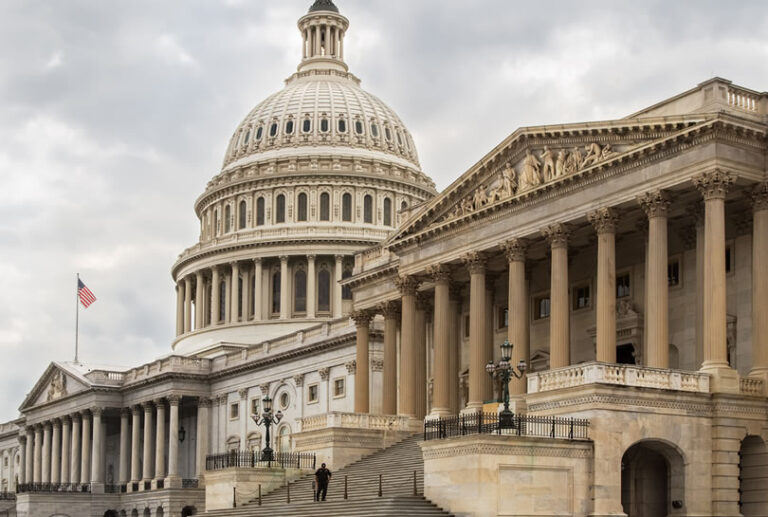Nov. 30, 2018 – The 2018 midterm elections resulted in a divided Congress, questions about possible agency changes, and uncertainty related to drug pricing policy and the Affordable Care Act, according to Kate Rawson, senior editor, Prevision Policy and The RPM Report, who spoke at the Coalition for Healthcare Communication’s “2018 Post-election Conference on Healthcare Policy,” held Nov. 26-27 in Washington, D.C.
“The midterms delivered divided government in Washington, [including] changes at the committee level, and the potential for lame duck legislation … and offer a great opportunity for some of the department heads to decide it’s time to exit,” Rawson told the CHC attendees.
She explained that with the House flipping to Democrats, hearings are likely to follow on drug pricing, the ACA’s pre-existing condition protections, opioids and PBM/rebate reform, and also predicted that there would be incremental change on drug pricing and measures to shore up the ACA, as well as continued expansion of Medicaid in certain states. She noted it was unlikely for there to be entitlement reform or outright repeal of the ACA.
Some of the new faces of the House leadership include Rep. Frank Pallone (D-N.J.) as the new House Energy & Commerce Committee chair, and Rep. Anna Eshoo (D-Calif.) as the new chair of that committee’s Health Subcommittee. Rep. Elijah Cummings (D-Md.) will take the helm at the House Oversight & Government Reform Committee; Rawson said Cummings “is very concerned about drug pricing and has met with President Trump on that issue,” and said last week that he would be “prepared to issue subpoenas to drug companies on pricing, if needed, so it’s obvious there will be a lot of noise out of that committee.”
On the Senate side, Sen. Orrin Hatch (R-Utah) is retiring from the Senate Finance Committee and it is expected that Sen. Charles Grassley (R-Iowa) will be stepping down from the Senate Judiciary Committee to fill that role.
In a lame duck session, Rawson predicted that a drug labeling bill (The Modern Act) in honor of Hatch could happen, as well as a permanent repeal of the ACA’s 2.3 percent tax on medical devices. What probably will not happen, she said, is an Orphan Drug Act amendment or a “technical fix” to the donut hole discount paid by pharmaceutical companies.
At the Department of Health and Human Services, Secretary Alex Azar’s position seems secure, Rawson said, “unless he moves to the Department of Justice.” CMS Administrator Seema Verma “stays under the radar,” and the biggest risk to the industry could be a possible departure of FDA Commissioner Dr. Scott Gottlieb. “All outward indications show that he is not ready to leave, but he may want to leave on a high note,” Rawson stated. “He has been the most activist commissioner we’ve seen, and is well-liked by industry.” She also reminded the audience that President Trump’s list of potential nominees before Gottlieb was nominated included “a lot of disrupters.”
In terms of the Trump administration’s drug pricing policy, including the recent proposal from HHS to require that drug companies include list prices in direct-to-consumer television ads, Rawson opined that this move could be “all bark, little bite.” She noted that Sen. Chris Coons (D-Del.), who addressed the Coalition the night before, “made a good point about consumers having sticker shock” and perhaps failing to access care based on fear of list prices that virtually no one pays.
The FDA’s “major statement” regulation (addressing how risk information is incorporated into drug labeling), scheduled for July 2019, might have a bigger impact on DTC advertising, Rawson suggested, because the basis for this regulation is “grounded in statute,” unlike the DTC ad list price proposal.
Rawson also addressed the proposed Medicare Part B International Price Index demonstration project (“Is this a shot across the bow to discuss part B prices, or is this a serious proposal?), other potential drug pricing initiatives, including the Nov. 26 notice regarding changes to Medicare Part B protected classes, and potential price disrupters, such as a subscription purchase model.
She also discussed the implications of the Center for Drug Evaluation and Research’s (CDER’s) “new” Office of New Drugs, which could be “very disruptive at first, but good in the long run,” and possible staff departures from CDER. It is important to remember, Rawson said, that “change is not necessarily bad. FDA is working to change the way that it regulates products.”
To view Rawson’s conference slides, go to the Resources tab above.




